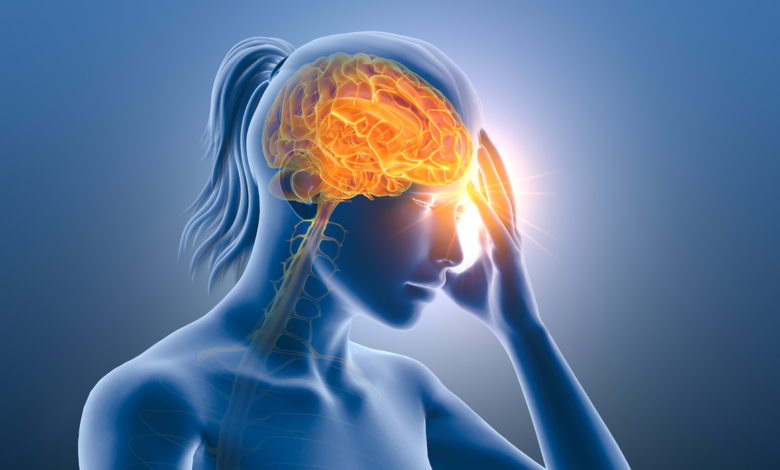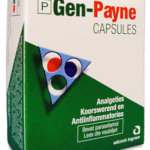How Fast Does Gen Payne Work For Migrane and Headaches?

A migraine is a common neurological disease that causes a variety of symptoms, most notably a throbbing, pulsing headache on one side of your head. Your migraine will likely get worse with physical activity, lights, sounds or smells. It may last at least four hours or even days. About 12% of Americans have this genetic disorder. Research shows that it’s the sixth most disabling disease in the world.
There are over 150 types of headaches, divided into two categories: primary headaches and secondary headaches. A migraine is a primary headache, meaning that it isn’t caused by a different medical condition. Primary headache disorders are clinical diagnoses, meaning there’s no blood test or imaging study to diagnose it. A secondary headache is a symptom of another health issue.
What is Gen Payne?
Gen-Payne Capsule is a combination analgesic containing paracetamol, codeine and ibuprofen. Studies have shown that combining paracetamol and other NSAIDs could give a theoretical synergistic analgesic effect according to already known or assumed mechanisms of action. Synergism is defined as an additive or supra-additive effect not achieved by one of the drugs alone.
NSAIDs, such as ibuprofen, have analgesic, antipyretic and anti-inflammatory actions. They inhibit synthesis of prostaglandins by inhibiting cyclo-oxygenase (COX), present as COX-1 and COX-2. Their analgesic and anti-inflammatory effects are a consequence of COX-2 inhibition.
Despite its widespread use, the mode of action of paracetamol is yet to be fully determined, although a centrally mediated analgesic action is thought likely. Paracetamol has minimal anti-inflammatory activity, implying a different mode of action from that of NSAIDs.
Codeine belongs to a class of medications called opiate (narcotic) analgesics and to a class of medications called antitussives. When codeine is used to treat pain, it works by changing the way the brain and nervous system respond to pain.
The combination of 3 analgesics with different modes of action results in an additive rather than a synergistic effect; the efficacy of the combination in acute pain is roughly similar to the sum of the efficacies of individual agents.
How is Gen-Payne Capsule taken?
For treatment of mild to moderate pain with or without fever, 1-2 capsules of Gen-payne is taken every 4 hours. Users have reported thrice a day and twice a day as the most common frequency of using Gen-Payne Capsule. Please follow your doctor’s advice on how often you need to take Gen-Payne capsule. Do not exceed 12 capsules in 2 hours. This medication contains ibuprofen, excess ibuprofen can cause serious nervous system problems such as seizures (neurotoxicity), low blood pressure (hypotension), low temperature (hypothermia), and other severe metabolic problems.
You should not take if:
- Your doctor has advised you not to
- You are allergic to codeine
- You are not able to take the paracetamol or ibuprofen provided with the medication
- You need to do anything other than sleep for the next four hours.
- You may be tested for drugs of abuse.
How long should I take Gen-payne Capsules?
If you have bought combined ibuprofen, paracetamol and codeine from a pharmacy, do not use it for more than 3 days. If you still have pain, talk to your pharmacist or doctor. It’s important to ask them for advice about ongoing pain relief.
How Fast Does Gen Payne Work For Migrane and Headaches?
Generally it takes about 30 to 60 minutes for you to begin feeling the effects of Gen-payne Capsules. However, this timeframe can vary from one person to the next, and for different reasons. When Gen-payne Capsules begins to work, you’ll typically start to notice a decrease in pain or fever.
What are the side effects of Gen-Payne Capsule?
The following is a list of possible side-effects that may occur from all constituting ingredients of Gen-Payne Capsule. This is not a comprehensive list. These side-effects are possible, but do not always occur. Some of the side-effects may be rare but serious. Consult your doctor if you observe any of the following side-effects, especially if they do not go away.
- Drowsiness
- Abdominal pain
- Rashes
- Insomnia
- Dizziness
- Nervousness
- Swollen facial features
- Constipation
- Feeling sick
- Itching
- Diarrhea
- Dry mouth
- Fatigue
- Abdominal cramps
- Lightheadedness
- Sedation
- Shortness of breath
- Nausea
- Vomiting
- Sweating
- Allergic reactions
- Euphoria
- Dysphoria
- Pruritis
- Faintness
- Flushing
- Hypotension
- Palpitations
- Syncope
- Anorexia
- Gastrointestinal distress
- Pancreatitis
- Anxiety
- Headache
- Shakiness
- Somnolence
- Vertigo
- Visual disturbances
- Weakness
- Rash
- Respiratory depression
- Circulatory depression
- Respiratory arrest
- Shock
- Cardiac arrest
- Skin rash
- Bleeding from the skin or nose
- Abnormal blood counts
- Severe skin reactions
- High blood pressure
- Heartburn
- Loose motions
- Liver problems
- Kidney problems
- Gas
- Severe skin allergies
- Flu
- Feeling of sickness
- Skin reddening
- Liver damage
- Abnormalities of blood cells
- Liver toxicity
- Less white blood cells
- Acute renal tubular necrosis
- Blood dyscrasias
Gen-Payne Capsule may also cause side-effects not listed here. If you notice other side-effects not listed above, contact your doctor for medical advice. You may also report side-effects to your local food and drug administration authority.





